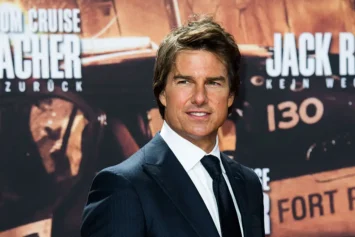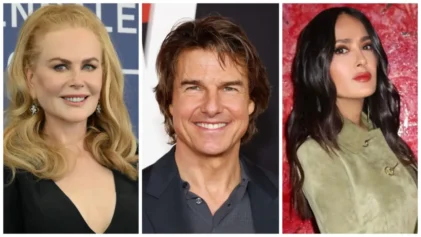Apparently it took the killing of 20 first graders in cold blood in Connecticut for Hollywood to wake up and realize they are complicit in the creation of America’s love affair with violence. This wake up call is being played out in the front offices of movie, television and music executives, as news comes that the red carpet premieres of Tom Cruise’s “Jack Reacher” and Quentin Tarantino’s new slavery epic, “Django Unchained,” have been canceled.
While it is understandable that the movie studio executives at Paramount, which produced “Jack Reacher,” and the Weinsten Company, which is behind “Django,” don’t want to appear insensitive to the gruesomeness that occurred in Connecticut last week by celebrating movies in which dozens of characters are brutally shot, the studios’ actions conversely highlight the ridiculous hypocrisy of the entertainment industry.
Is it only after an unspeakably violent tragedy that Hollywood suddenly finds a conscience and realizes that its products are needlessly violent? But a week later, a month later, it’s okay to send these cartoonishly vicious images out into the American marketplace, planting seeds of violence detachment and glorification in the minds of American children on an hourly basis?
In addition to “Django,” TLC has postponed the premiere of a series called “Best Funeral Ever” that focuses on a Texas funeral home that throws a party after each service. If the series is inappropriate and insensitive right after a tragedy like Newtown, then why is it okay to air it two weeks later? Instead of premiering on Dec. 27, the Hollywood Reporter says it will now air on Jan. 6.
In the music realm, Ke$ha’s song, “Die Young,” is seeing a big drop in its appearance on top 40 radio rotations—according to TMZ, it reached 167 million U.S. radio listeners on Friday but fell to 148 million listeners by Monday, an 11 percent drop, which is considered significant for a top 40 pop song.
The point is not to advocate censorship, but if there’s a recognition that these products are problematic after a Newtown happens, perhaps someone should consider whether they are having any harmful effects on any everyday basis outside of tragedy. It doesn’t take a medical expert to recognize the violent images fed to our children (and adults) must have a damaging effect on the psyche—an effect that many studies have shown desensitizes us to violence. We’re not saying these are the factors that led Adam Lanza to murder 28 people in Newtown—but they couldn’t have helped.
As could be expected, Tarantino wanted no part of this idea that his movie should be connected to something like the Newtown shootings. At a weekend press junket for “Django Unchained,” Tarantino dismissed the connection.
”I just think, you know, there’s violence in the world, tragedies happen, blame the playmakers,” he said, according to the BBC. “It’s a western. Give me a break.”
Meanwhile, the actors in “Django” talked about the pain of having to so frequently throw around the word “nigger”—someone counted that it’s used 110 times in the movie—in making a realistic slavery epic.
“These characters use the N-word because that’s what people said back then, and again if you don’t understand how ugly the time is, you don’t understand how bad [Django] is to get through this time,” Kerry Washington said to Access Hollywood, talking about Jamie Foxx’s Django character.
“There were days when hearing that N-word over and over again would start to get a little uncomfortable and Jaime and I had these imaginary shields… we’d roll up our n-word shield,” she explained.
Foxx said Tarantino wanted viewers to feel uncomfortable with the word.
“I think that what Quentin wanted to do was really let you know how it really was [during this time] and you’re not supposed to feel good about it,” Foxx said.
According to Foxx, Samuel L. Jackson helped motivate Leonardo DiCaprio, who admitted to them he was having a difficult time with some of the scenes.
“When Leo goes, ‘Buddy, I’m having a tough time with these words’ and then… Samuel Jackson [told him] ‘It’s just another Tuesday for us, get over that.’ And I told Leo, if you don’t go there then we don’t have a story. So the next day he walked [and] he didn’t even speak to me,” Foxx said, adding, “We knew we had to go to a bad place and when I talked to black people about the film and they say they were bothered by the N-word, I said, ‘It’s supposed to, it’s supposed to bother you. Those horrific things that happened to us, is supposed to bother you.’”
But Washington wanted viewers to know that despite such haunting talk, the movie somehow will also make viewers laugh.
“This film is the full ride… you will absolutely laugh, you will cry, you will be afraid, you will fall in love. You get the whole shebang,” she told Access Hollywood.


